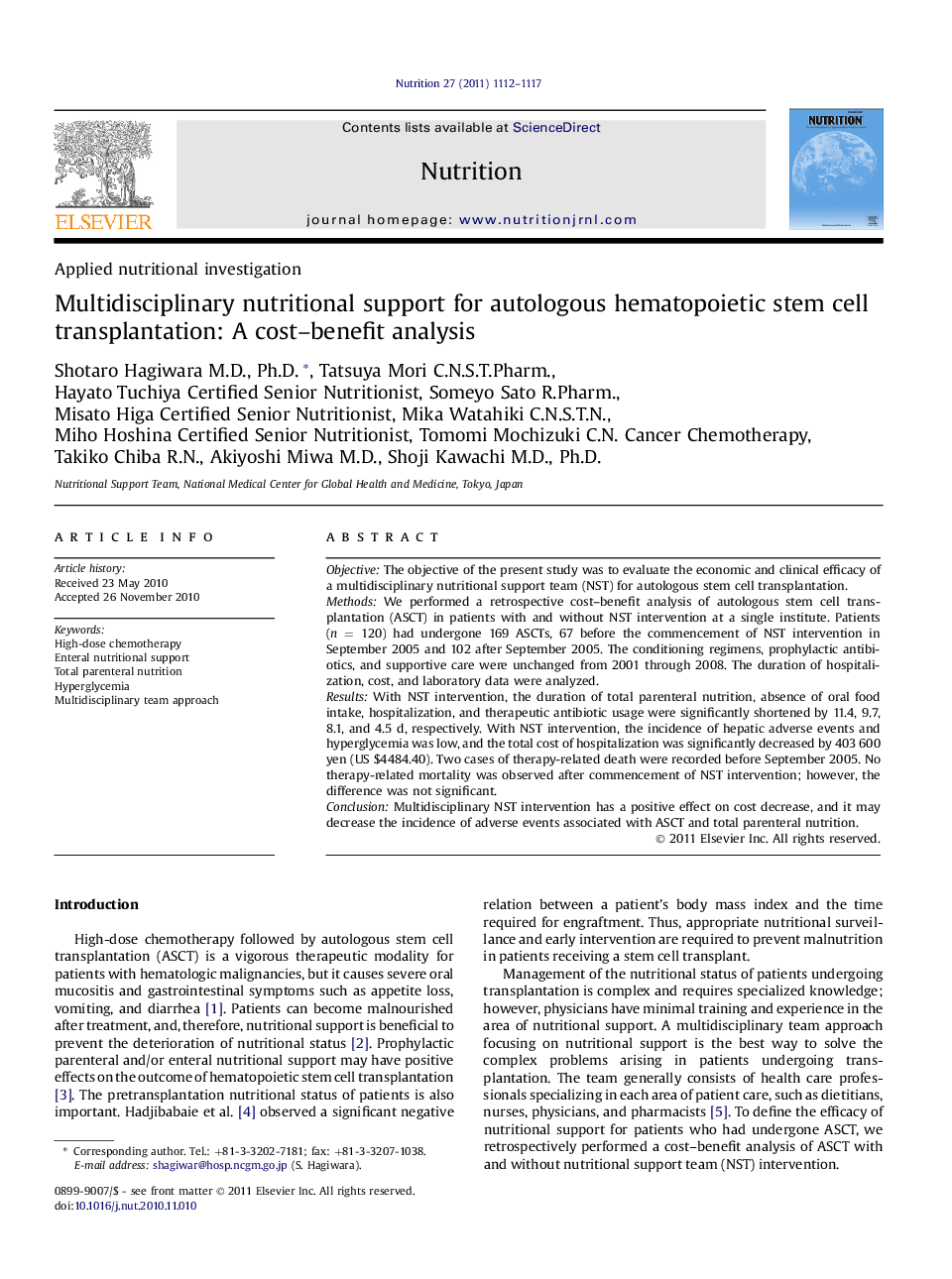| Article ID | Journal | Published Year | Pages | File Type |
|---|---|---|---|---|
| 6090489 | Nutrition | 2011 | 6 Pages |
ObjectiveThe objective of the present study was to evaluate the economic and clinical efficacy of a multidisciplinary nutritional support team (NST) for autologous stem cell transplantation.MethodsWe performed a retrospective cost-benefit analysis of autologous stem cell transplantation (ASCT) in patients with and without NST intervention at a single institute. Patients (n = 120) had undergone 169 ASCTs, 67 before the commencement of NST intervention in September 2005 and 102 after September 2005. The conditioning regimens, prophylactic antibiotics, and supportive care were unchanged from 2001 through 2008. The duration of hospitalization, cost, and laboratory data were analyzed.ResultsWith NST intervention, the duration of total parenteral nutrition, absence of oral food intake, hospitalization, and therapeutic antibiotic usage were significantly shortened by 11.4, 9.7, 8.1, and 4.5 d, respectively. With NST intervention, the incidence of hepatic adverse events and hyperglycemia was low, and the total cost of hospitalization was significantly decreased by 403 600 yen (US $4484.40). Two cases of therapy-related death were recorded before September 2005. No therapy-related mortality was observed after commencement of NST intervention; however, the difference was not significant.ConclusionMultidisciplinary NST intervention has a positive effect on cost decrease, and it may decrease the incidence of adverse events associated with ASCT and total parenteral nutrition.
